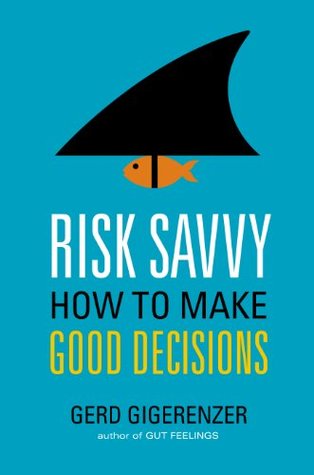More on this book
Community
Kindle Notes & Highlights
people often base decisions on one good reason only. Moreover, such decisions can be better than when trying to consider all reasons.2 Combining different reasons would require converting all reasons into a common currency.
three time bombs are ticking away in current health care systems that threaten to undermine trust. Physicians don’t do the best for their patients because they: 1. practice defensive medicine (Self-defense), 2. do not understand health statistics (Innumeracy), or 3. pursue profit instead of virtue (Conflicts of interest).
(www.the cochranelibrary.com) is one of the best resources for the results of medical research. It is nonprofit and summarizes what we know about treatment of thousands of medical conditions.
The risk literacy curriculum I envision includes three topics and three classes of skills. The three topics are: Health literacy Financial literacy Digital risk competence Three skills are required for mastering each topic: Statistical thinking Rules of thumb Psychology of risk
Training in abstract disciplines such as algebra and geometry has been claimed to improve thinking and problem-solving skills. If that were true, we would not have so many doctors who do not understand health statistics or lawyers who do not understand DNA
Multitasking succeeds only if all tasks but one are taken over by the unconscious, that is, when these are all performed on autopilot.
when things go wrong, we are told that we need better technology, more laws, and bigger bureaucracy. One idea is absent from that list: risk-savvy citizens. Instead, paternalism is seen as the solution.
Hard paternalism, like antismoking legislation, coerces people into behaving a particular way and can be morally defended as long as it protects people from being hurt by others. Soft paternalism, such as automatically enrolling people into organ donation programs unless they opt out, nudges people into behaving a particular way. The idea is that governments should steer people’s choices without coercing them. As a general policy, coercing and nudging people like a herd of sheep instead of making them competent is not a promising vision for a democracy.
As I have shown for health and wealth, those are a rare breed: The average doctor or financial adviser has conflicting interests, practices defensive decision making, or does not understand the evidence. That’s why we have to think for ourselves and take responsibility into our own hands. As we’ve seen, it is possible to improve competence in dealing with risk and uncertainty.
As John Adams, the second American president, said in 1765, “Liberty cannot be preserved without a general knowledge among the people”—all
SIC syndrome. A key problem in health care every patient should be aware of. Many physicians: practice defensive medicine (Self-defense), do not understand health statistics (Innumeracy), or pursue profit instead of virtue


